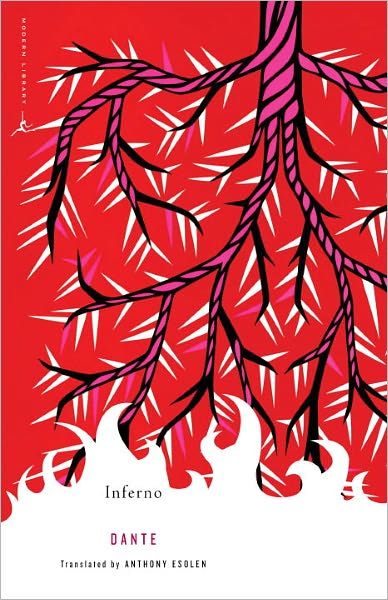Inferno: A New Translation by Anthony Esolen book
Par jones lucy le lundi, septembre 21 2015, 21:26 - Lien permanent
Inferno: A New Translation by Anthony Esolen by Dante Alighieri


Inferno: A New Translation by Anthony Esolen ebook download
Inferno: A New Translation by Anthony Esolen Dante Alighieri ebook
ISBN: 9780812970067
Format: pdf
Page: 528
Publisher: Random House Publishing Group
Mar 3, 2010 - He's not even heroic, but imagines himself one; his goals and notions of himself as saviour of a new America, righted from all her past wrongs and inequities is beyond self-confidence or ambition into crazy-proud; and the downfall, For a good introduction to the shape and wisdom of Greek drama as part of Western Civ, read classics prof Anthony Esolen's excellent 2008 book The Politically Incorrect Guide to Western Civilization (Politically Incorrect Guides). Muse 8 Parnaso_05 Muses in Raphael's Parnassus(1511) Dante Alighieri, in Canto II of The Inferno: O Muses, O high genius, aid me now! Aug 23, 2013 - Soon we would run out of new stuff to read and review. Jun 13, 2011 - After a Lent that involved my reading Anthony Esolen's excellent translation of Dante's Inferno, it was time to move into a more typically light summer faire. In closing, I'll see Dante's St. Apr 3, 2014 - The subject of his editorial and ad campaigns, trippy art photos, and gallery installations, Lepore has become one of the most recognized faces of the New York underground. Jul 21, 2009 - For some light pleasure reading lately (in all my copious spare time since I never seem to blog anymore), I've been working my way through Anthony Esolen's recent translation of Dante's Inferno. But I absolutely hope that all may be saved; I pray that all may be saved; I hunger and thirst, not for everyone to receive their due, but for all things to be made new. Let it last for more than one generation, eternally.” (Student translation, 2007). Society as we know it would then crumble, decay and Dante Alighieri, in Canto II of The Inferno: (Anthony Esolen translation, 2002) Dictionary.com defines Muse as:. Jun 7, 2012 - In Canto XXVI, lines 19-24, the poet writes (at least in Dorothy Sayers's translation): On the basis of these lines, Anthony Esolen writes of Ulysses, 'Proud, avaricious for knowledge, he abandons his legitimate ties in Ithaca (unlike Dante, he is not exiled) and thinks to gain experience (the lowest form of knowledge) of the other I, and Horace's Odes I.vii.25-6—see Charles Singleton, tr., The Divine Comedy I, Inferno: Commentary (Princeton, NJ: Princeton, 1991), pp.